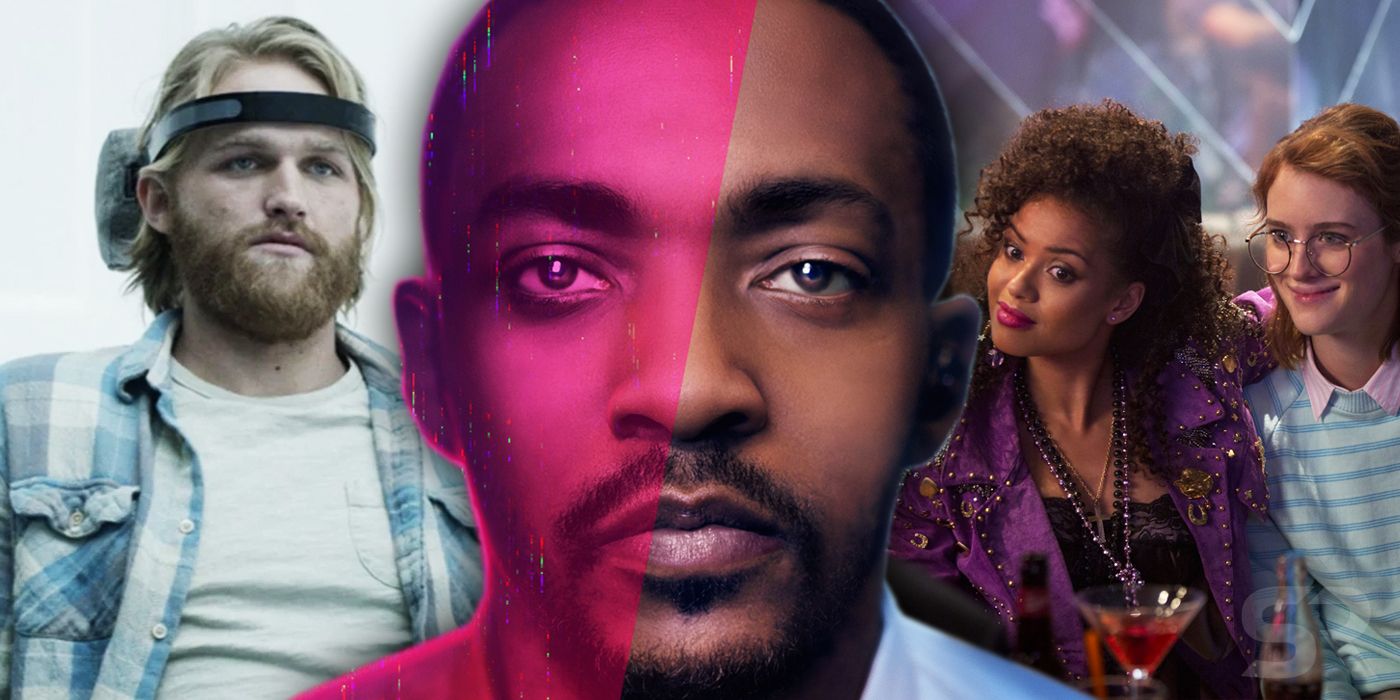
Every episode of Charlie Brooker’s Black Mirror features a story about the possible future of technology in some of the most horrifying and unsettling ways. Each depiction of a new technological advancement is used to emphasize the overarching plot of the series: technology will destroy humanity. As of this writing, the Black Mirror universe includes 22 episodes and one feature-length movie, but how do they compare to each other?
The series premiered in December 2011 through the British broadcasting network, Channel 4. It remained there for two seasons after which Netflix purchased the rights to the series in order to offer a larger platform for the incredibly nuanced, dystopian world Brooker created. Season 3 officially released through the streaming service in October of 2016 and has since garnered a large following. Following season 4, Brooker developed the choose your own adventure movie Bandersnatch, which features a young video game designer named Stefan who is at the mercy of the viewer. After season 5’s 3-episode release, fans patiently awaited news about the next set of disturbing stories. Much to their dismay, the COVID-19 pandemic put a halt to Brooker’s development of Black Mirror season 6. As of this writing, the showrunner is debating on putting the series on hiatus, as he’s said the world feels almost too depressing for another season.
On December 3, 2020, Brooker released a teaser trailer for an upcoming mockumentary, Death To 2020. It referenced the series and its creators by stating, “Even the creators of Black Mirror couldn’t make this year up, but they do have something to add.” Whether it will actually relate to the series is unknown, but it’s plausible that Death To 2020 will be part of the larger Black Mirror universe as well as its social and political commentary. However, they don’t seem to be connected other than sharing the same creator. While fans continue to wait for announcements concerning season 6, there are still 22 incredible episodes available to stream through Netflix along with Bandersnatch. Without further ado, here is every episode of Black Mirror, including the series’ movie, ranked from worst to best.

Season 4, episode 2, “Arkangel,” is one of the most controversial episodes in the entire series. It was directed by Jodie Foster, known famously from her role as Clarice Starling in The Silence Of The Lambs. “Arkangel” follows a young girl named Sara who is implanted with an arkangel device that allows her mother to block her from seeing specific things and people as well as monitor her at all times. What makes “Arkangel” so bad is the fact that it relied on misinformation about emergency contraceptives and teenage pregnancy to disturb the audience. It’s also one of the more forgettable episodes, as the elements that did make it unsettling were overshadowed by its controversial contents.
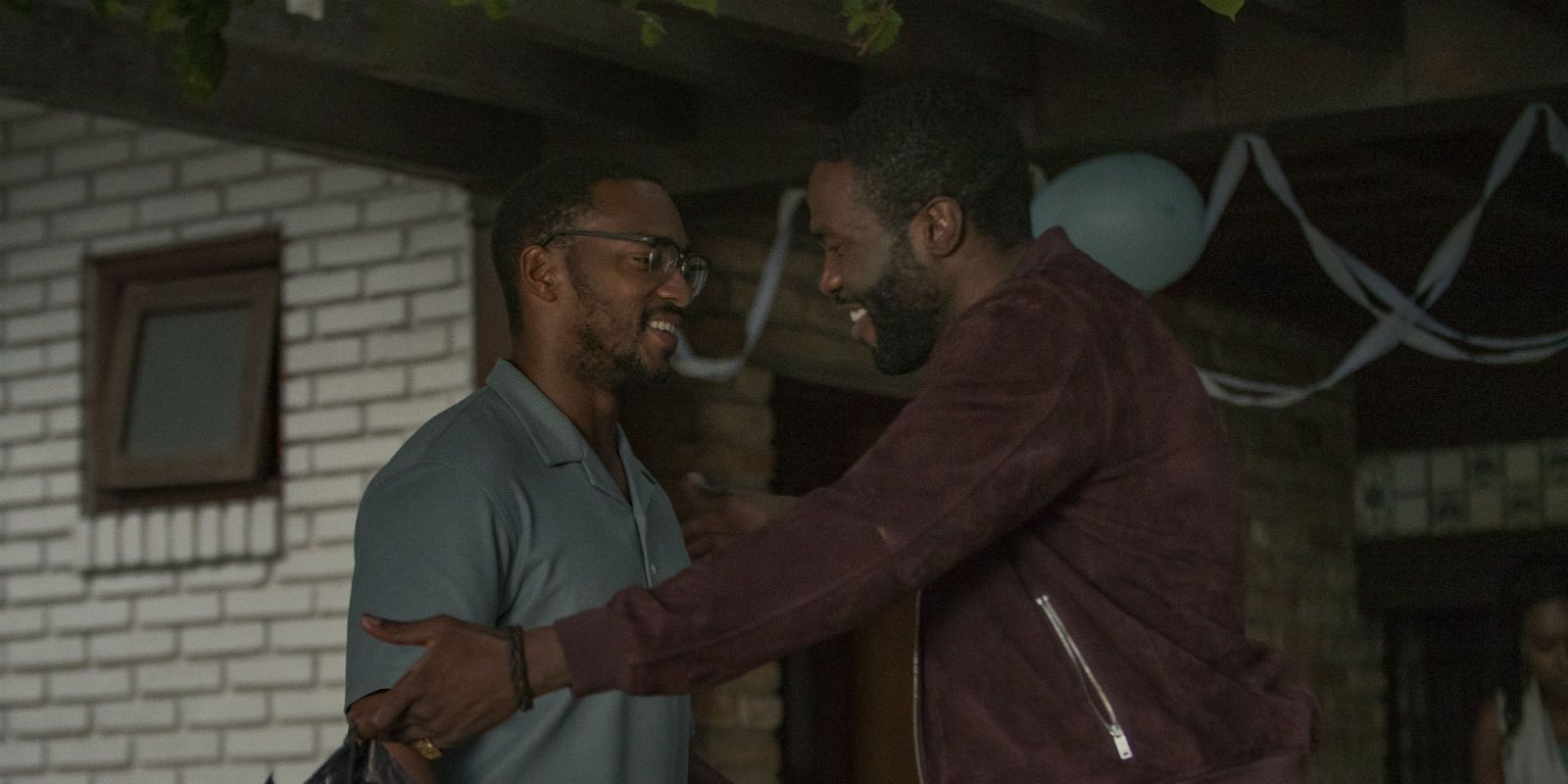
Season 5, episode 1, “Striking Vipers,” isn’t necessarily bad, but it is underwhelming. The storyline follows Danny (Anthony Mackie) and Karl (Yahya Abdul-Mateen II) who’ve been friends for years and start a sexual relationship while playing a virtual reality game. While Karl develops genuine feelings for his friend, they are not reciprocated. This detail transforms this story about unrequited love into one about blackmail and regret. The ending of “Striking Vipers” is the most disappointing aspect of this episode, as it finds the characters in a very bizarre love triangle that isn’t explored to the extent that it needed to be.
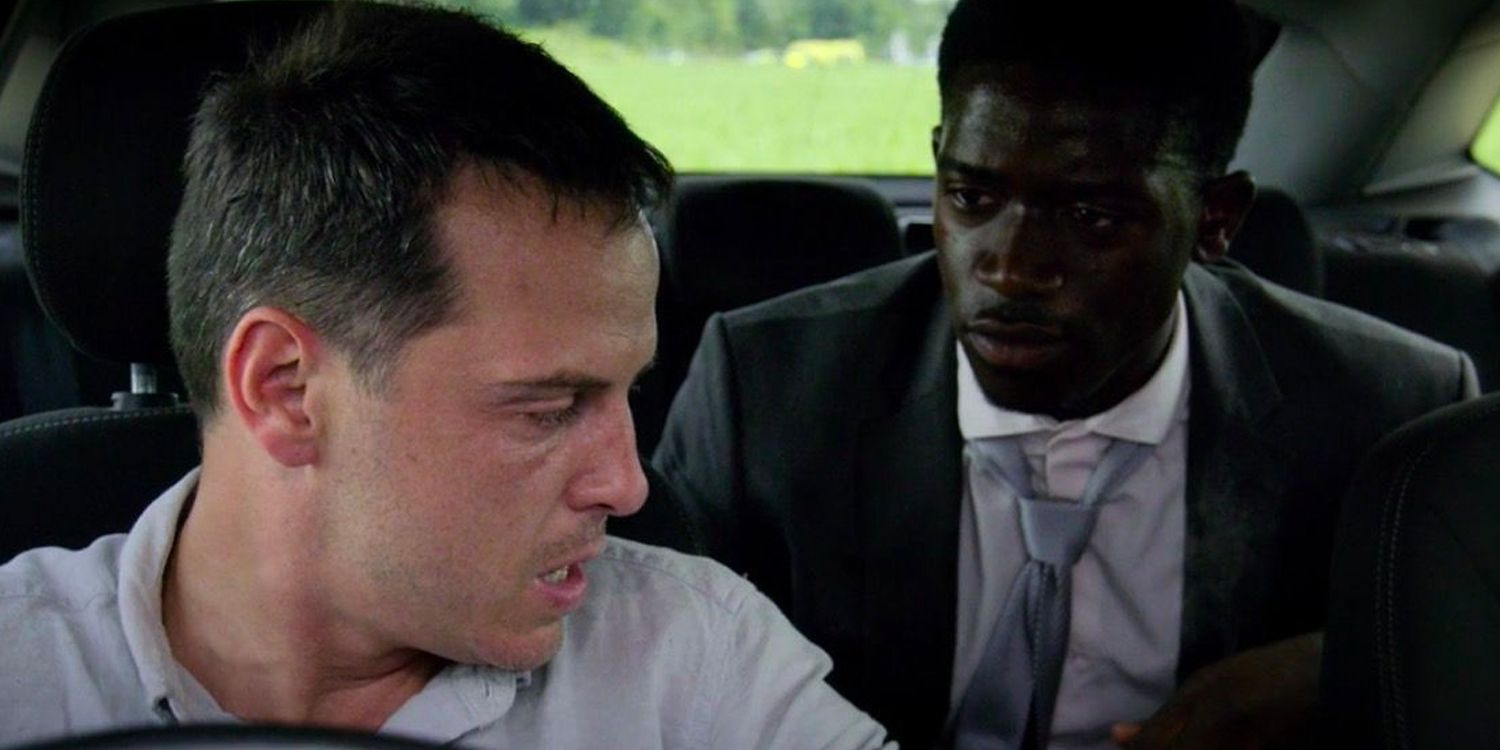
Topher Grace portrays a social media mogul in season 5, episode 2, “Smithereens”, who is blamed for the death of Chris’s wife. This episode in particular had the ability to captivate its audience early on, but culminated in drawn-out scenes that take away from what’s actually important, which attributes to its poor ranking. While most shows get better with age, Black Mirror season 5 was largely disappointing on the whole. Even with major names attached to it, “Smithereens” failed to live up to expectations.
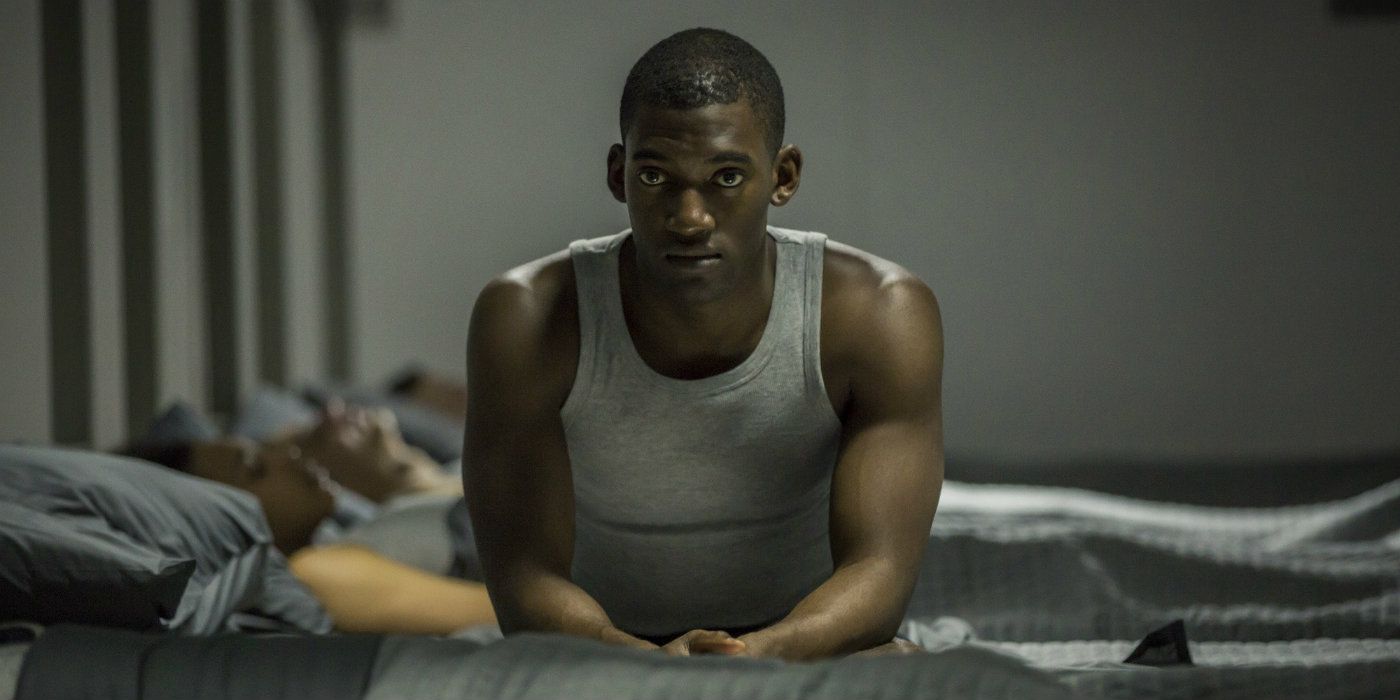
Season 3, episode 5, “Men Against Fire,” follows military personnel as they are sent to take out people referred to as “roaches.” They appears as deformed creatures that lack do not appear entirely human. At its core, “Men Against Fire” commentates on larger social issues of prejudice, as the military are implanted with equipment that causes them to perceive specific groups of people as disfigured threats and ridding them of their humanity. The first half of the episode is incredibly strong, but the second half does not give off the same energy, causing it to fall short.
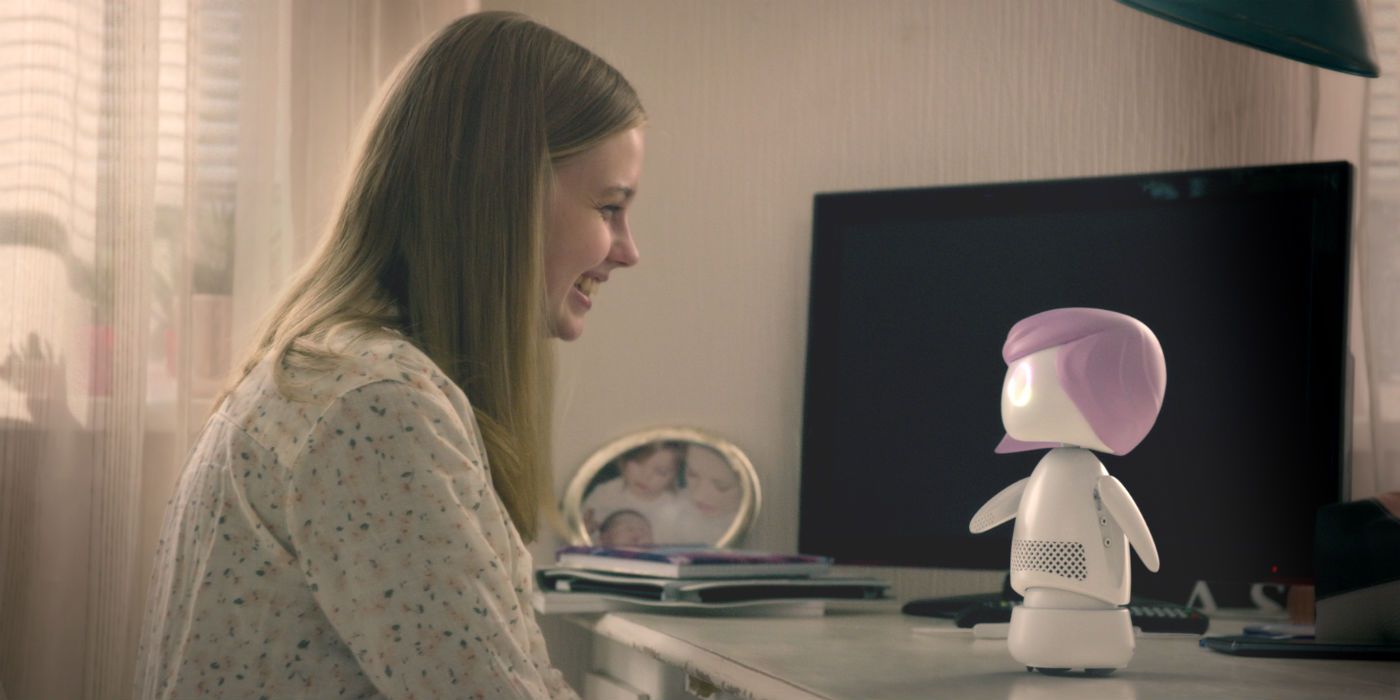
Season 5, episode 3, “Rachel, Jack, and Ashley Too,” stars Miley Cyrus as Ashley O, a popstar whose aunt has been manipulating her for monetary gain. After she is forced into a coma, it is up to Rachel and Jack to rescue her before it’s too late. It’s something of a familiar story, as it’s about a woman in distress who needs to be rescued from the horrors of her guardian. Compared to other episodes, “Rachel, Jack, and Ashley Too” is not the worst, but it’s also not the best — this middling effort causes it to fall toward the end of the list as a result.
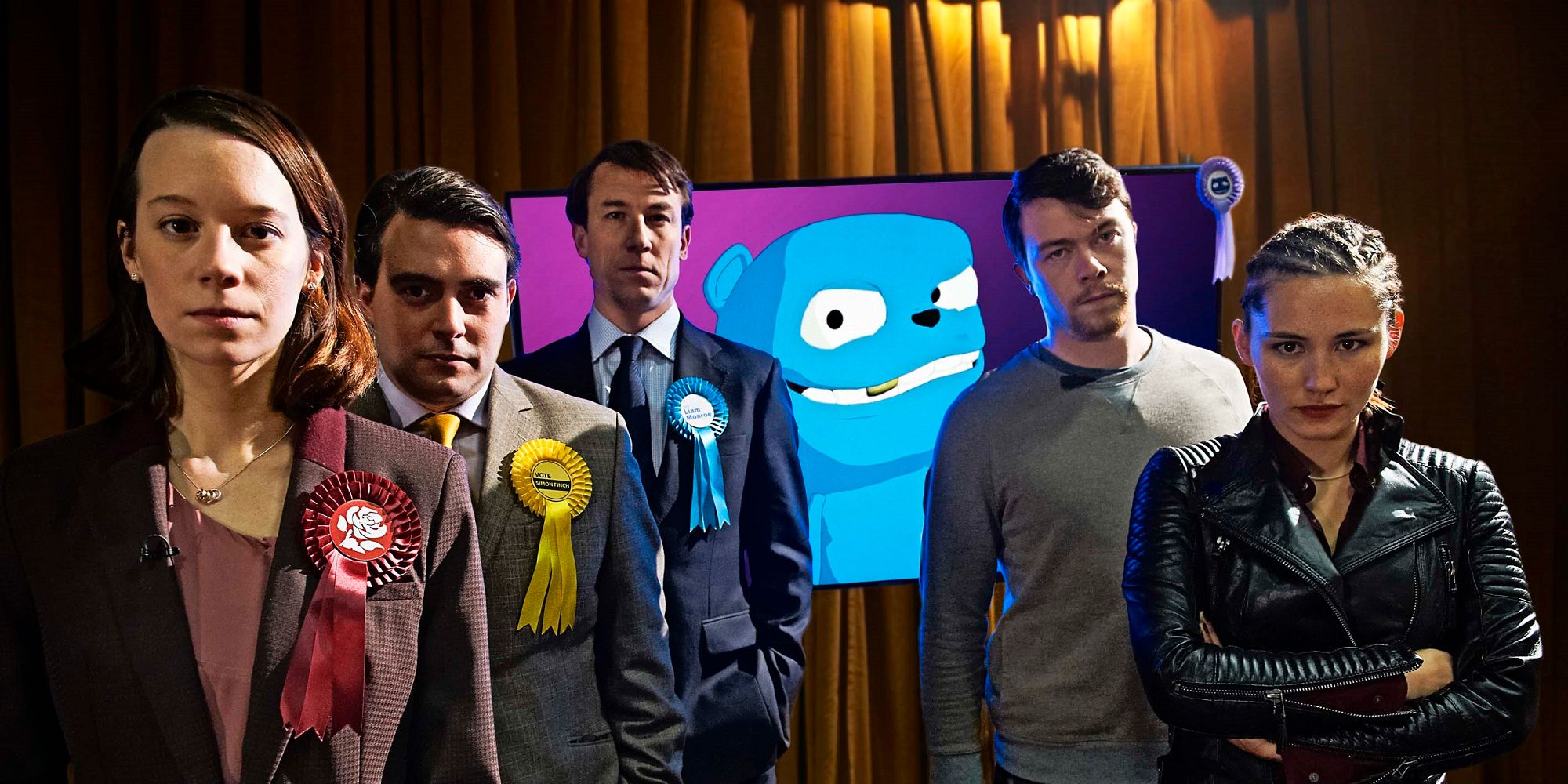
Season 2, episode 3, “The Waldo Moment”, is one of the most well-known episodes from the series. It features a cartoon character named Waldo who’s a vulgar political commentator that calls out the hypocrisy of the government. When he gets the opportunity to run for office, it isn’t long before Waldo becomes a symbol for a fascist police state. The episode’s story is somewhat relevant, especially in regard to celebrities running for political office. The only reason that it falls below other episodes on this list is due to the fact that it is overly confusing at times, and it’s never fully explained how Waldo became a symbol of hate.
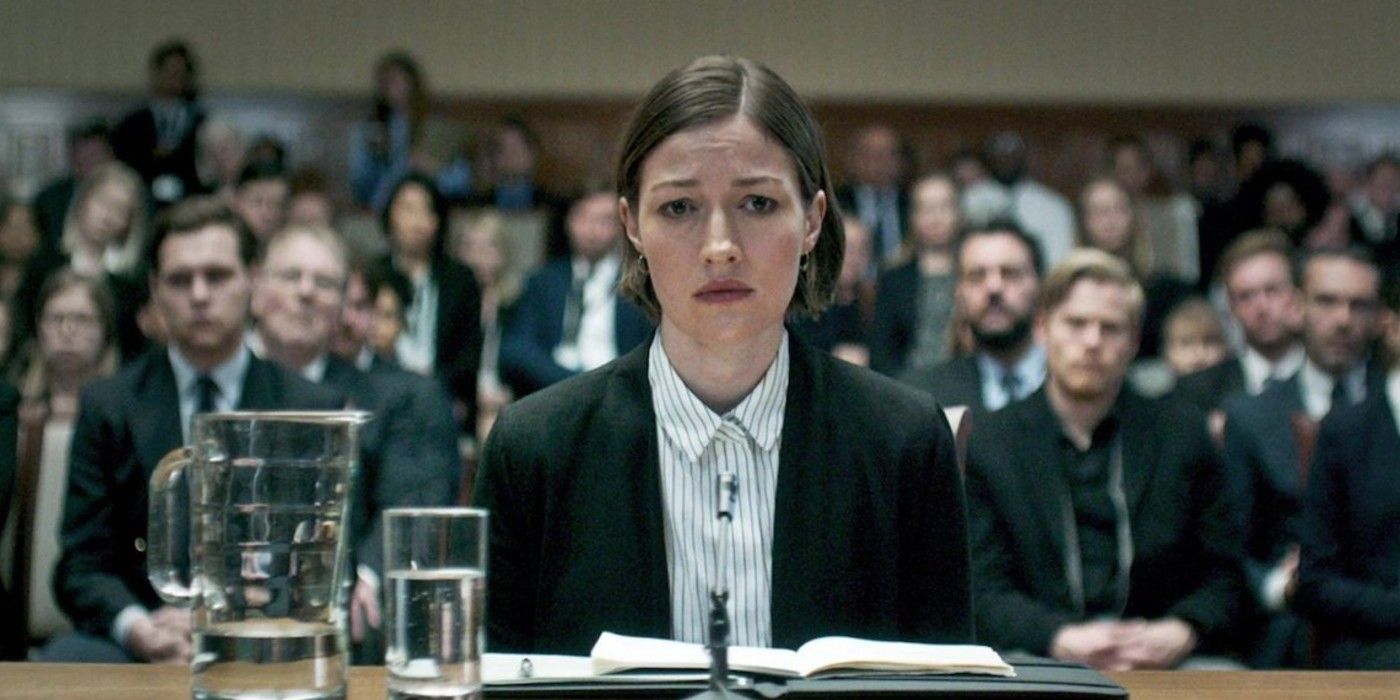
Charlie Brooker based season 3, episode 6, “Hated In The Nation,” on his own experiences with cancel culture online. After he published an article that called for the assassination of the U.S. president, he received violent threats from complete strangers. This episode depicts how internet mob mentality can grow to astronomical proportions, especially when a group of people start a trending hashtag that calls for the death of another person. Brooker’s “Hated In The Nation” confronts the harsh realities of navigating social media, which makes it eerily familiar and relevant.
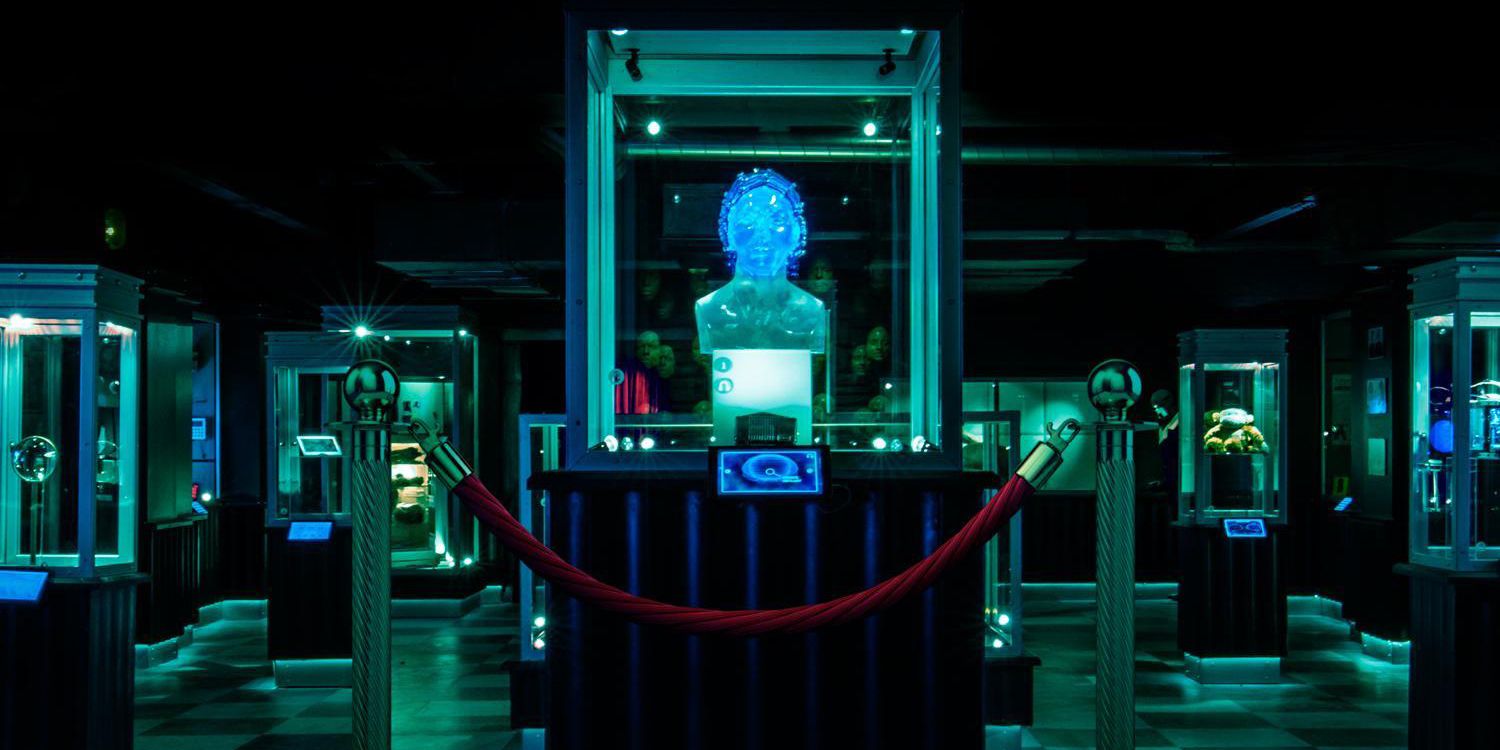
Season 4, episode 6, “Black Museum”, brings all of the horrifying technological advances of the series under one roof. With Rolo Haynes as its curator, he explains how each piece of equipment was used and how it assisted in someone’s downfall. The episode is composed of three short stories, making it an anthology with a framing device about revenge. While “Black Museum” has its own unique plot and solidifies the theory that every episode exists on the same timeline, it plays more into fan service than anything. Each of Haynes’s stories are horrific in their own right, but technologies from earlier episodes may grab the attention of viewers more than the newly introduced ones.
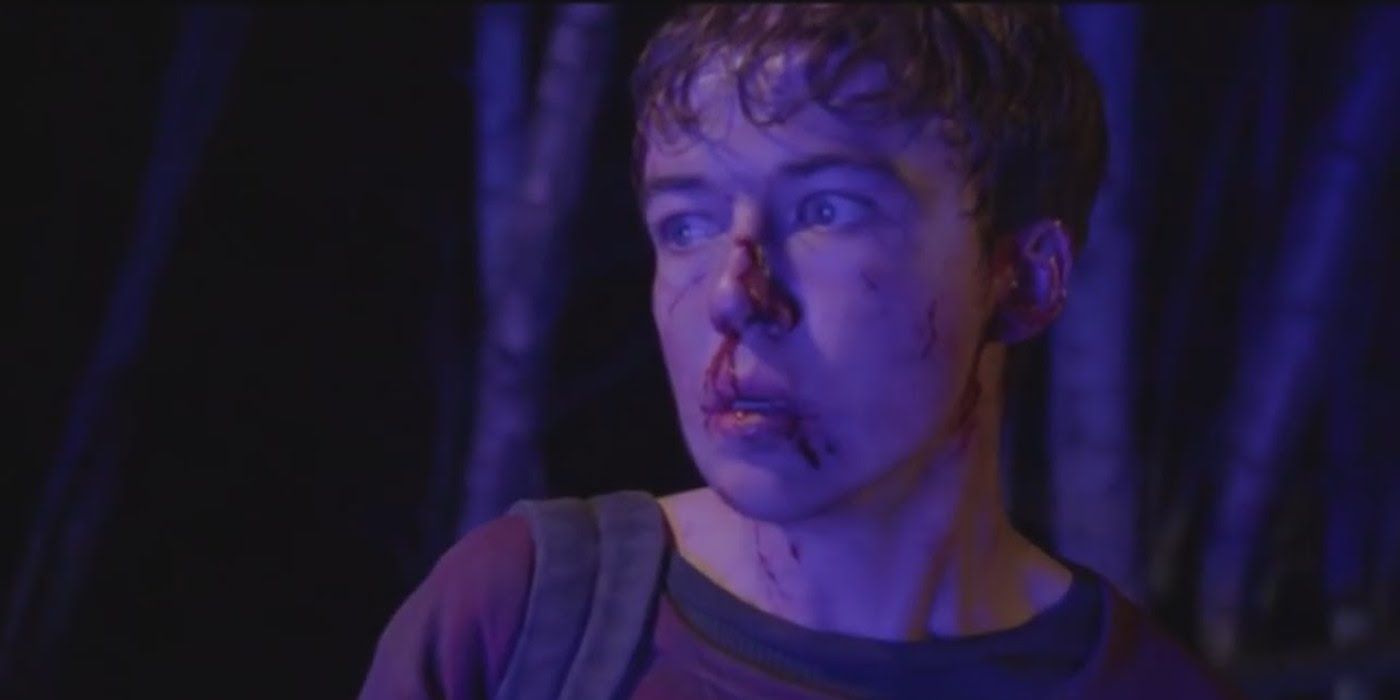
In season 3, episode 3, “Shut Up And Dance,” the threat of a hacker accessing someone’s webcam in order to blackmail them becomes a reality when Kenny is forced to commit several crimes to avoid being outed as a sex offender. This episode is one of the most disturbing out of the entire Black Mirror catalogue not only for the depiction of internet hackers, but also for exposing the harsh realities that sexual predators can appear as innocent teenagers. If this episode did not require a second viewing in order to fully comprehend its complicated plot, it would be much higher on the list.

When Frank and Amy match using the “System”, they discover that they are actually being tested rather than participating in a virtual reality matchmaking service as they initially expect. Black Mirror season 4, episode 4, “Hang The DJ”, is one of the very few episodes that actually has a happy ending — this rarity gives it a unique quality that others don’t have. While it is an incredible episode that questions the future of dating websites and cellphone apps, its plot is drawn out, and somewhat predictable.
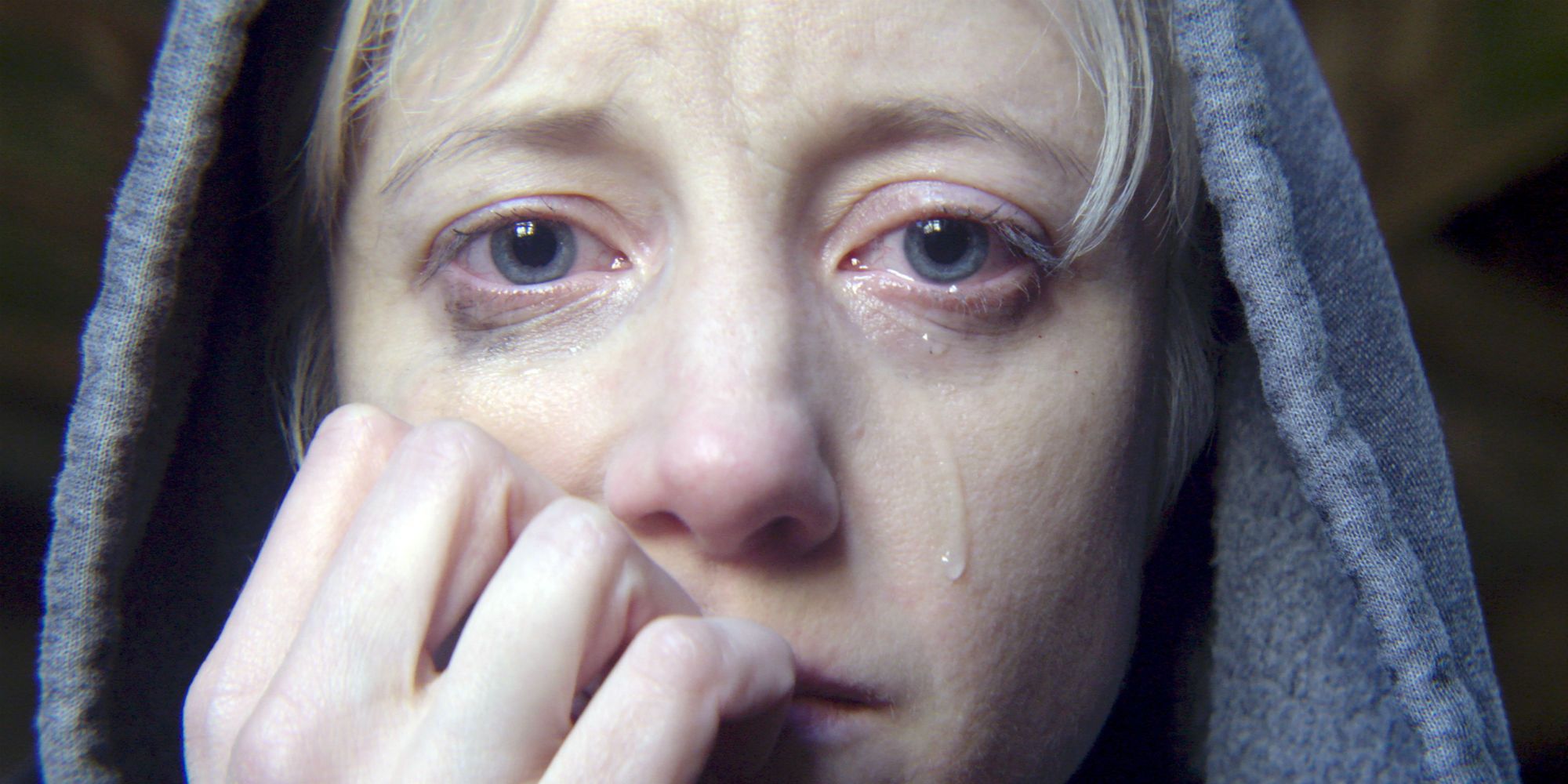
Starring Andrea Riseborough as Mia, season 4, episode 3, “Crocodile” tells the story of a woman who was forced to keep a secret. When it resurfaces, her career and life as she knows it are on the line. In a desperate attempt to hide her crimes, she commits several new ones that all culminate in an incredibly disturbing ending. While “Crocodile” features an inventive and unique take on police investigations and how they acquire evidence, the characters are a bit overdramatized and lack believability.
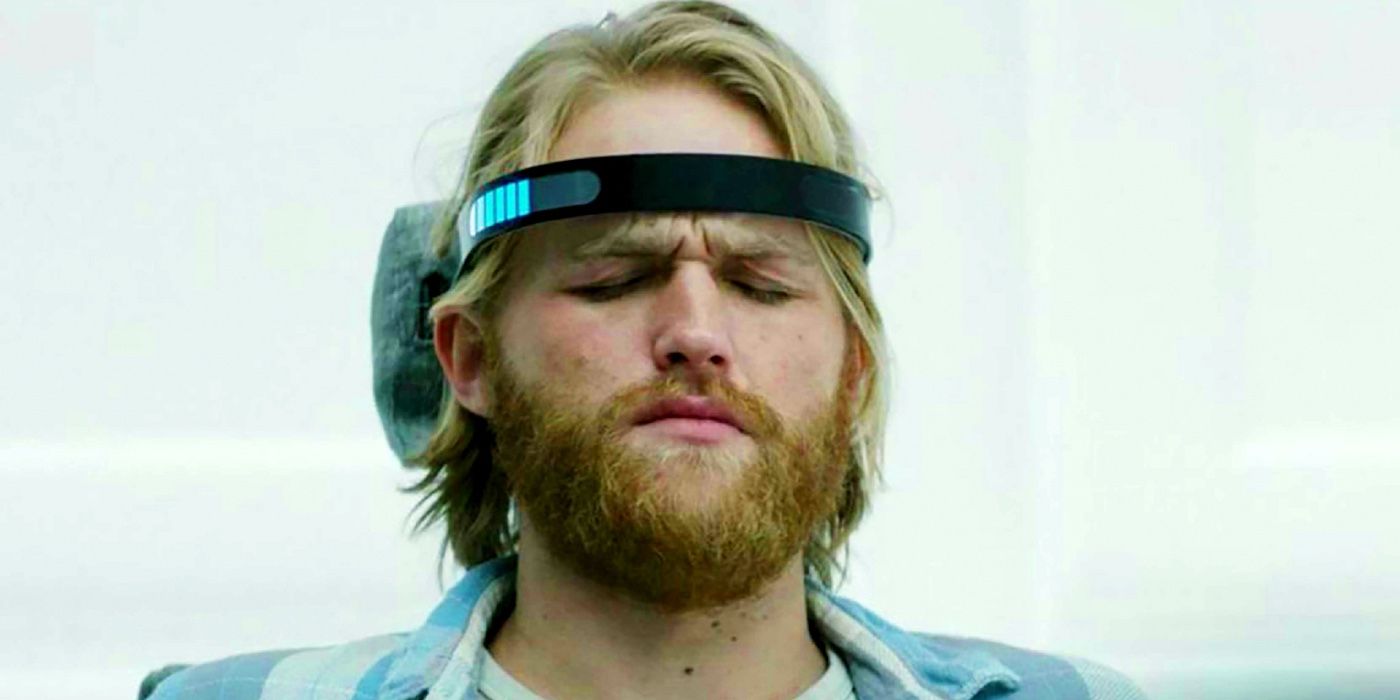
If there is any episode of Black Mirror that deserves the outright definition of being horror, it’s season 3, episode 2, “Playtest.” When Cooper participates in testing a new virtual reality game, his seemingly innocent trip takes a massive turn. With bizarre horrors and hereditary terrors, “Playtest” is a marker of how horror, technology, and hereditary afflictions can create an incredibly unsettling storyline, especially when Brooker is involved.
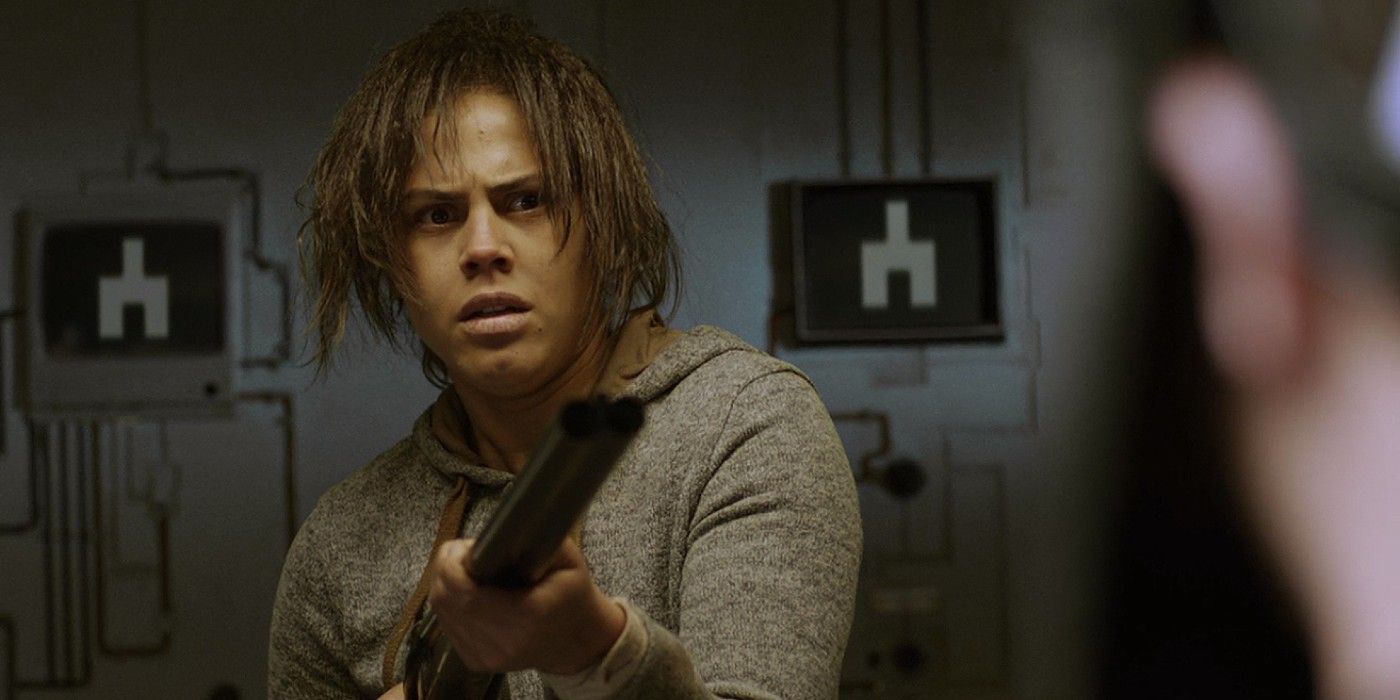
Season 2, episode 2, “White Bear”, proposes how the future of criminal punishment could play out. When Victoria Skillane wakes up to find that she is being hunted for seemingly no reason, it’s revealed that everything is part of her sentence for assisting in the murder of a young girl. The White Bear Justice Park allows for citizens to hunt her down or witness her being hunted as a form of spectacle to gain satisfaction from watching someone whose committed a heinous crime suffer. It posits a serious question for the audience. Who’s more vile? The person who committed a crime or the person torturing someone who committed a crime?
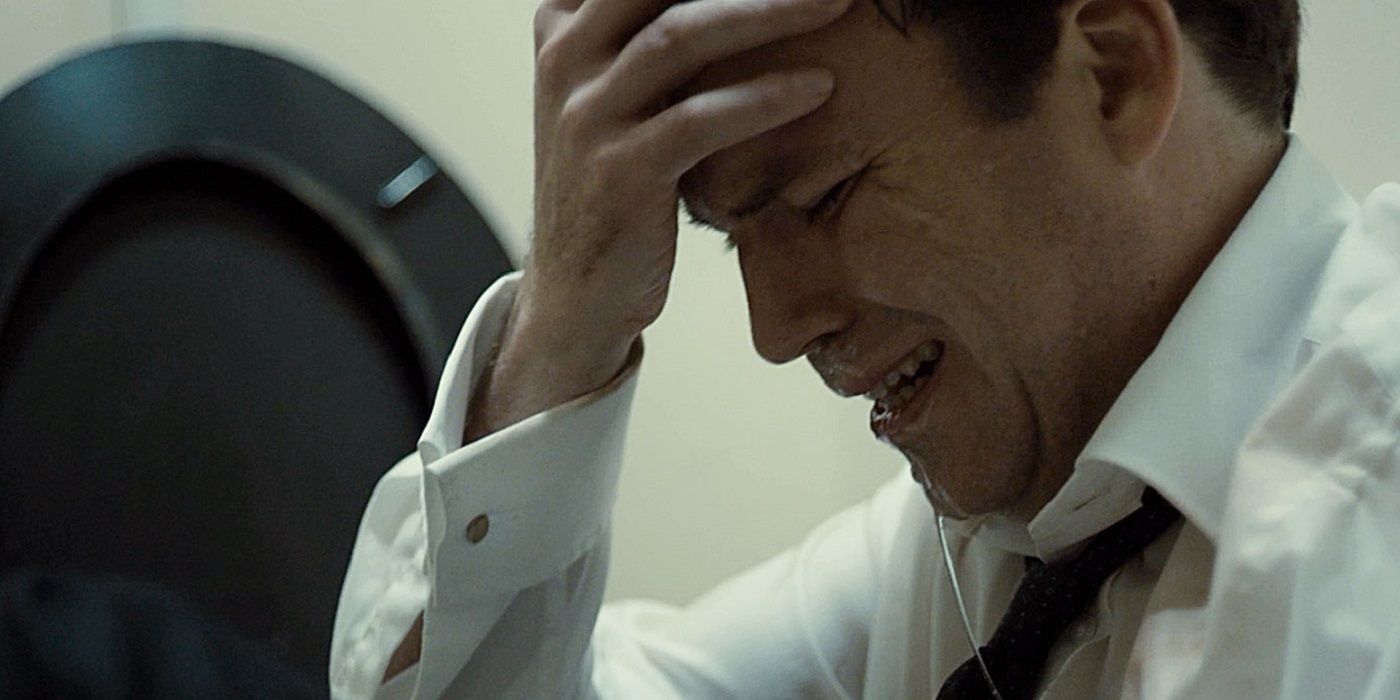
Season 1, episode 1, “National Anthem”, will likely live in infamy forever as the episode where the prime minister fornicates with a pig. When people are first introduced to the series, it’s entirely common that they start with this episode, though Black Mirror episodes can be viewed in any order. However, the contents of “National Anthem” can quickly deter them from going further. It’s for this reason, as well as the episode’s bland moments of dialogue, that it falls towards the middle of the pack.
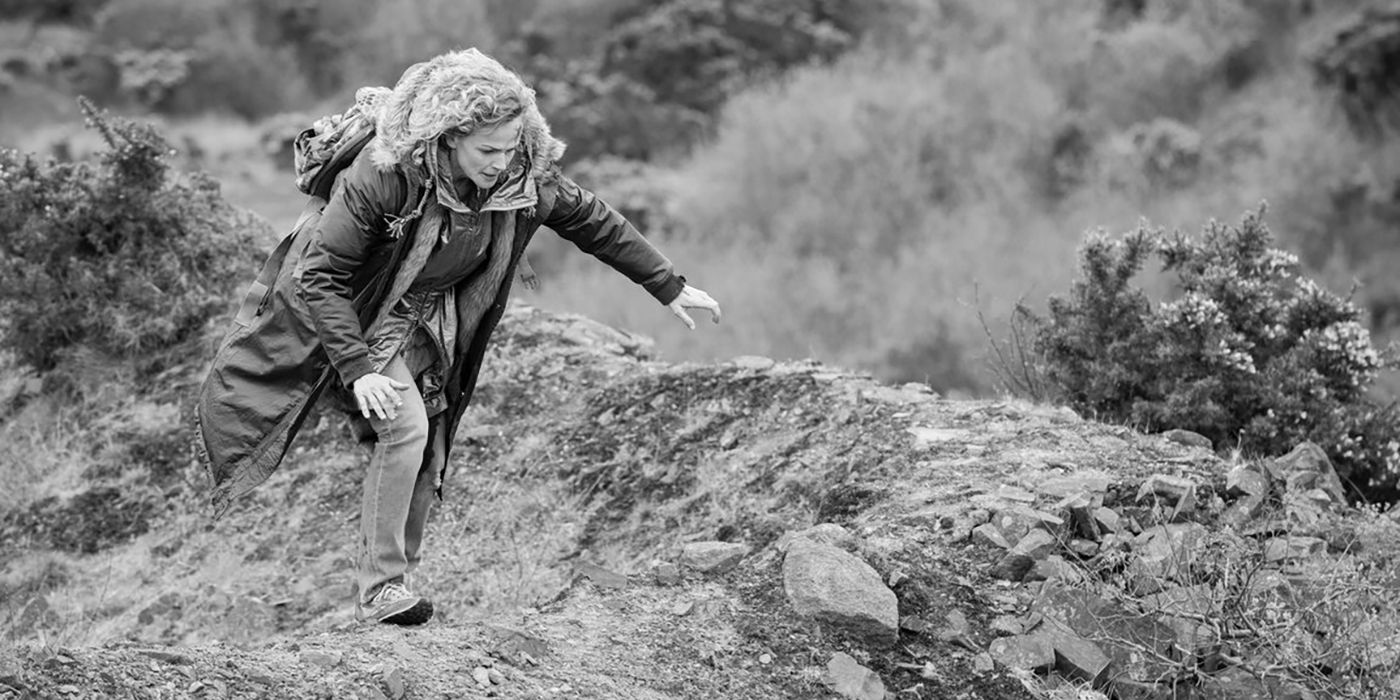
In season 4, episode 5, “Metalhead,” a woman is being chased by robotic dogs for seemingly inexplicable reasons. The bare bones quality of this episode makes it one of the best, as it does not rely on overly dramatized depictions of technology, relationships, or situations to be effective. Instead, it simply posits that, at some point, humanity will be largely wiped out and people will struggle to survive as they’re being hunted by once-trusted technologies. The heartfelt ending of “Metalhead” and its ability to capture the humanity that continues to exist even as the end draws also helps nearly make it one of the best episodes in the entire show.
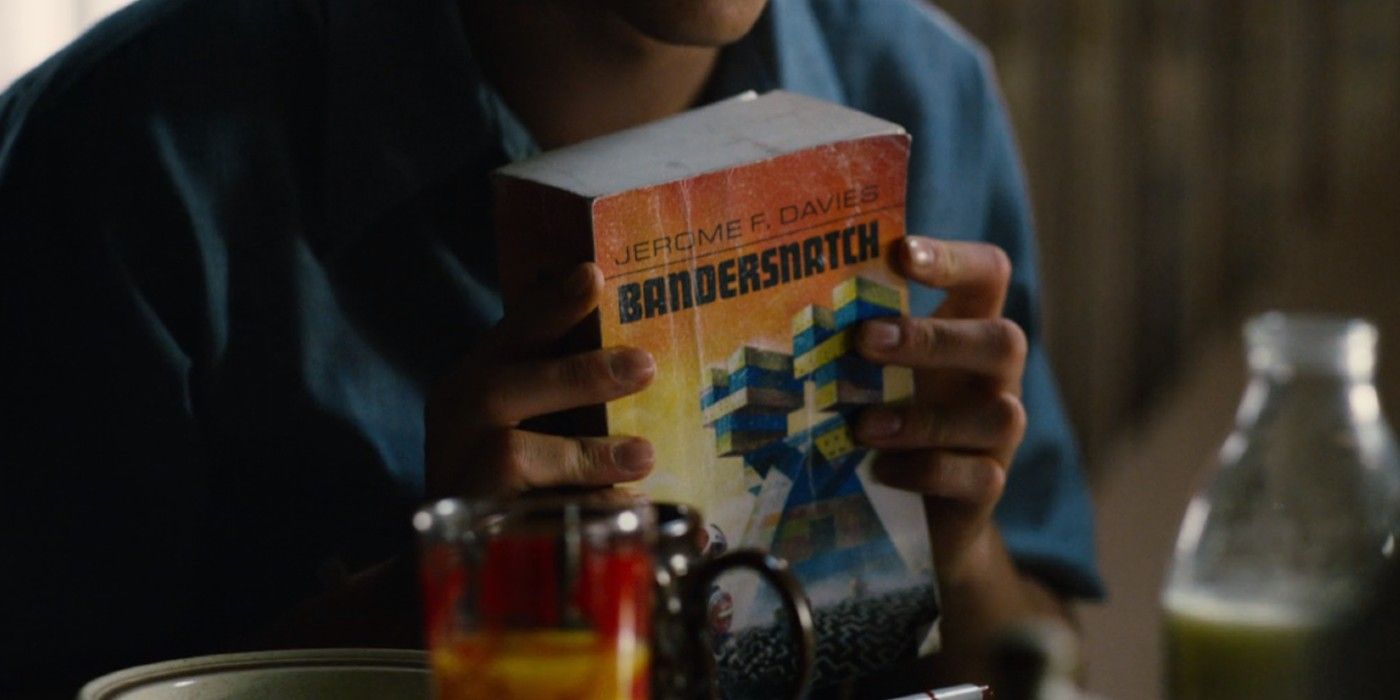
Bandersnatch is the first movie in the Black Mirror universe as well as the first choose your own adventure movie that Netflix has ever released. Its uniqueness is enough to put it fairly high above several episodes, but it’s the way it links the overarching universe that makes it one of the greatest installments to date. The symbol from “White Bear” appears, Tuckersoft gaming becomes an integral factor, Saint Juniper’s hospital is present, and the stories of “Nosedive” and “Metalhead” are transformed into video games. Bandersnatch is one of the most intricate Black Mirror stories to date and deserves high praise for everything it was able to achieve as a choose your own adventure movie.
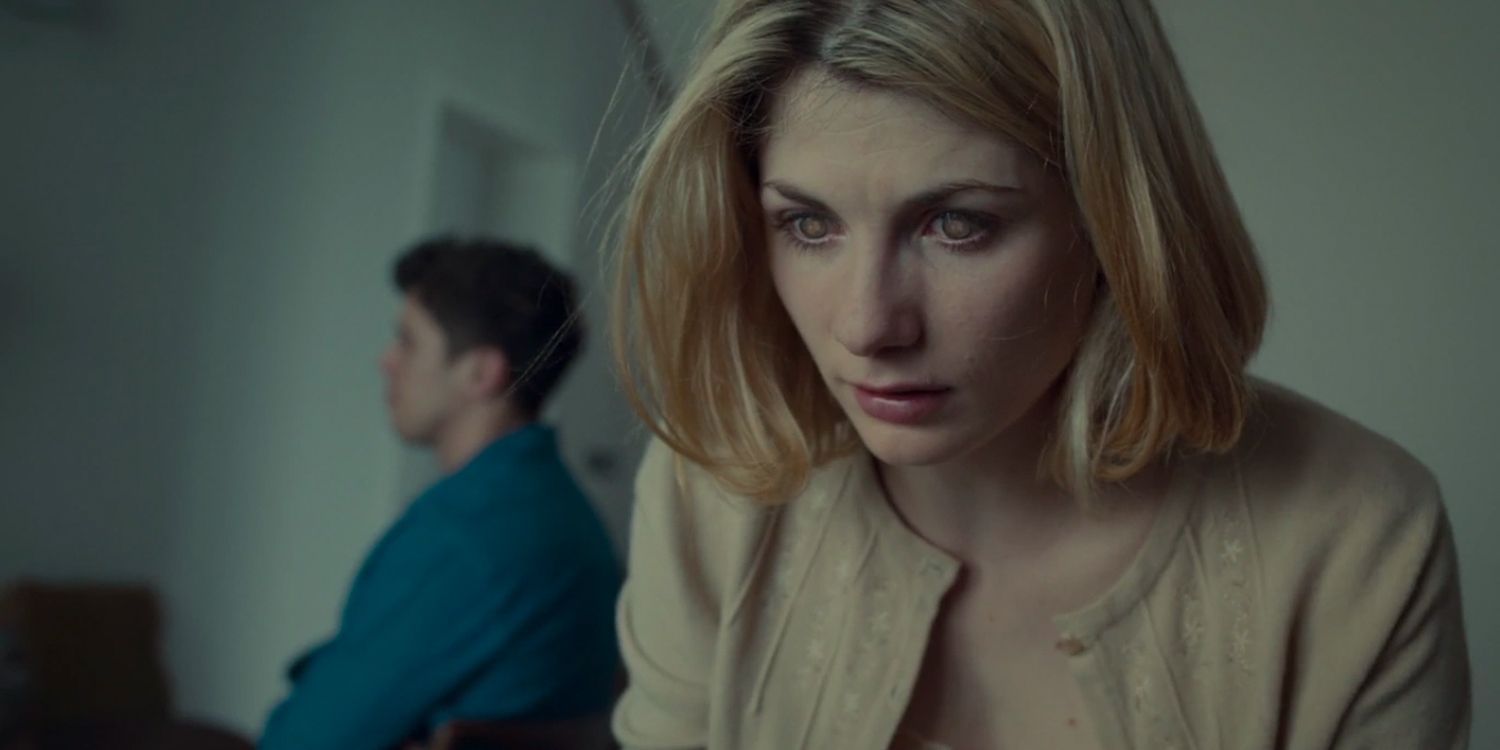
Black Mirror season 1 is remarkably strong for only having three episodes. In episode 3, “The Entire History Of You,” a couple is put at odds when the husband discovers that his wife may have cheated on him, and the daughter he thought was his may not be. It involves jealousy and resentment, but, most of all, it includes a technological device that allows people to look through their memories, which is not always a good thing in this case. Looking back on fond memories can be a delight, but “The Entire History Of You” showcases how some are better left behind rather than recorded in order to revisit them later. Looking back can be too painful, and can even consume a person’s entire existence.
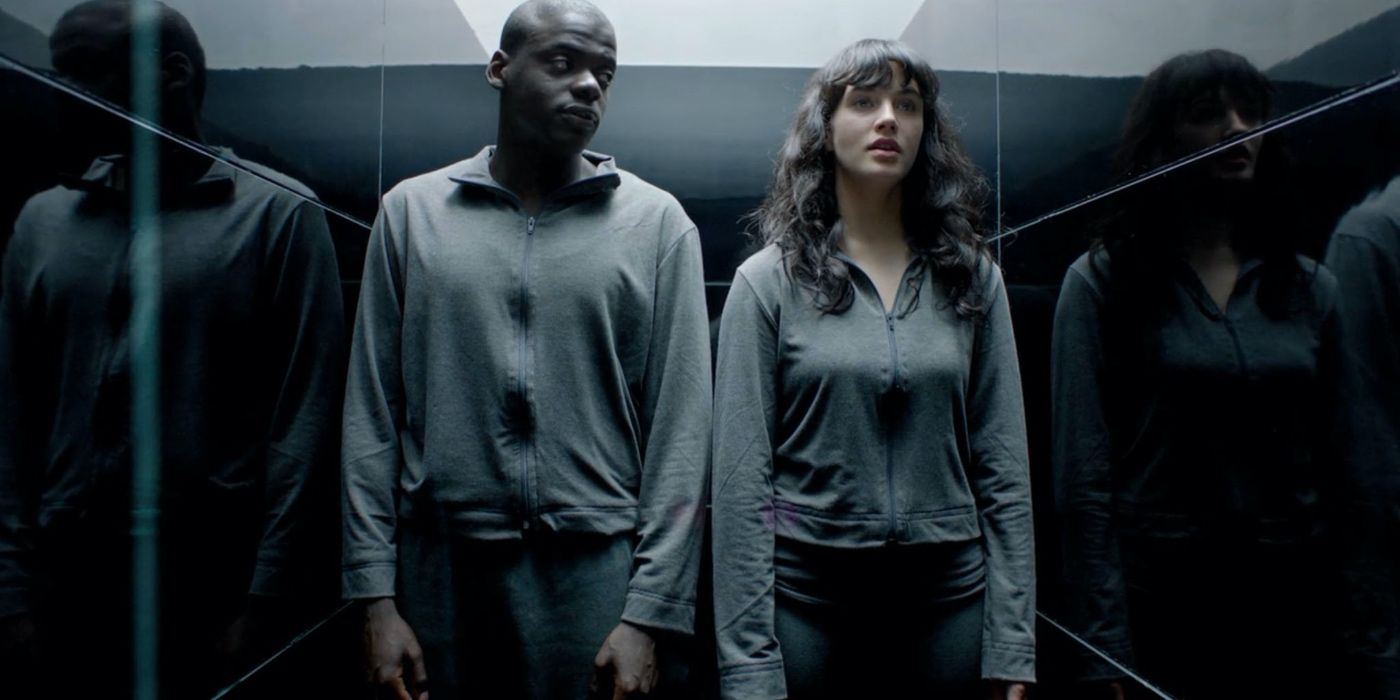
Black Mirror’s season 1, episode 2, “Fifteen Million Merits” stars Daniel Kaluuya of Get Out fame. When Bing (Kaluuya) offers Abi his merits, she goes on a game show where she’s offered the opportunity to leave the manual labor of power-generating behind for sex work. After he discovers what has happened to her, Bing sets his sights on going on the game show himself so that he can speak out against their mistreatment of people and threaten to take his own life. As a result, he is offered his own television series, which he shockingly accepts despite his initial sentiments. It commentates on how fame can sometimes triumph over morality, which Bing showcases when he abandons seeking justice for Abbi to have his chance in the limelight, and is one of the most well-acted episodes in the series.
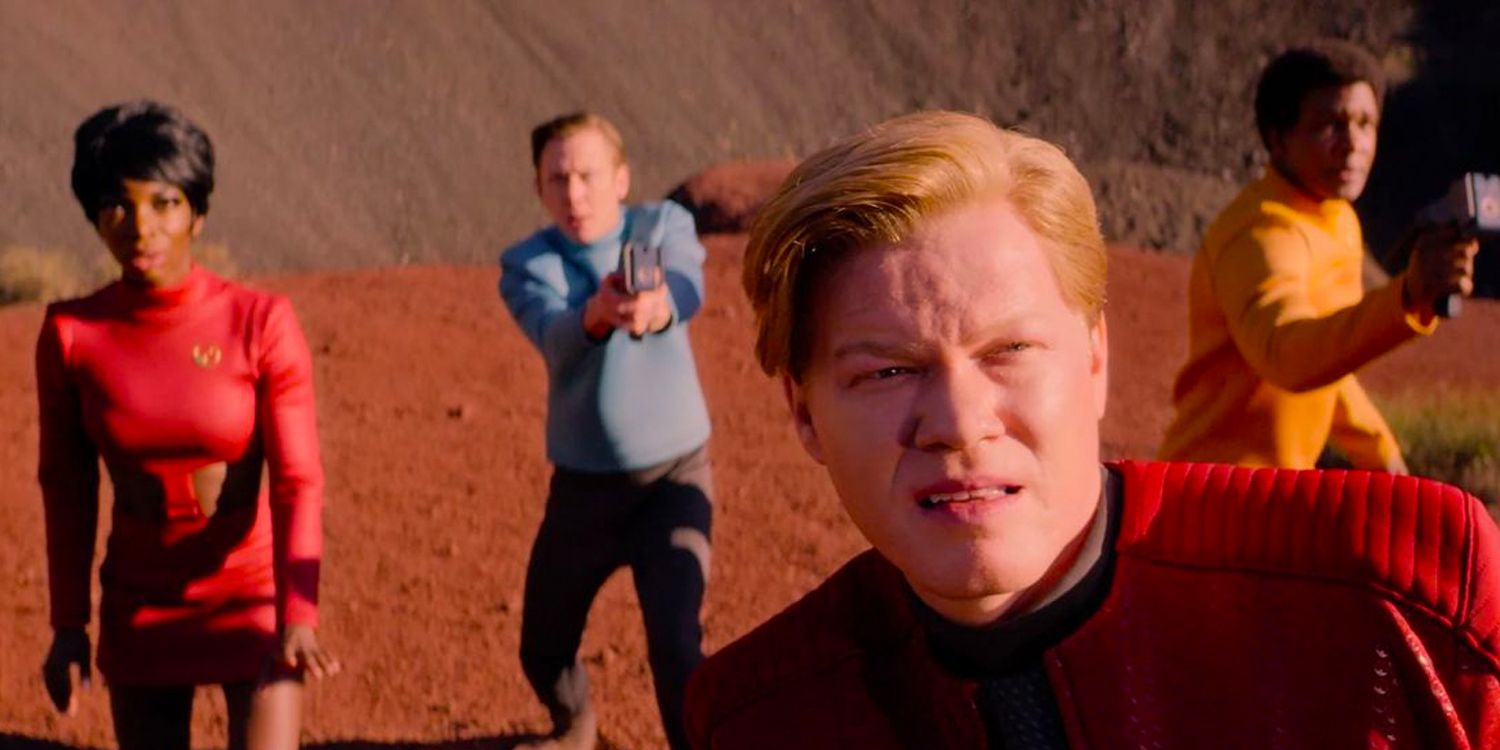
Season 4, episode 1, “USS Callister”, features several themes familiar to Black Mirror: virtual reality, video games, and manipulation. Robert Daly, played by Jesse Plemons of 2020’s I’m Thinking Of Ending Things, co-founded a multiplayer online game. However, he is largely forgotten in favor of his colleague, who is far more charismatic than him. This episode highlights the fragility of a person’s ego as well as the toxicity of entitlement when morality is completely abandoned. While “USS Callister” is sometimes known as “the Star Trek episode,” it is also recognized as one of the most important, as it examines several ethical dilemmas and the horrors of people who want nothing but to control others.
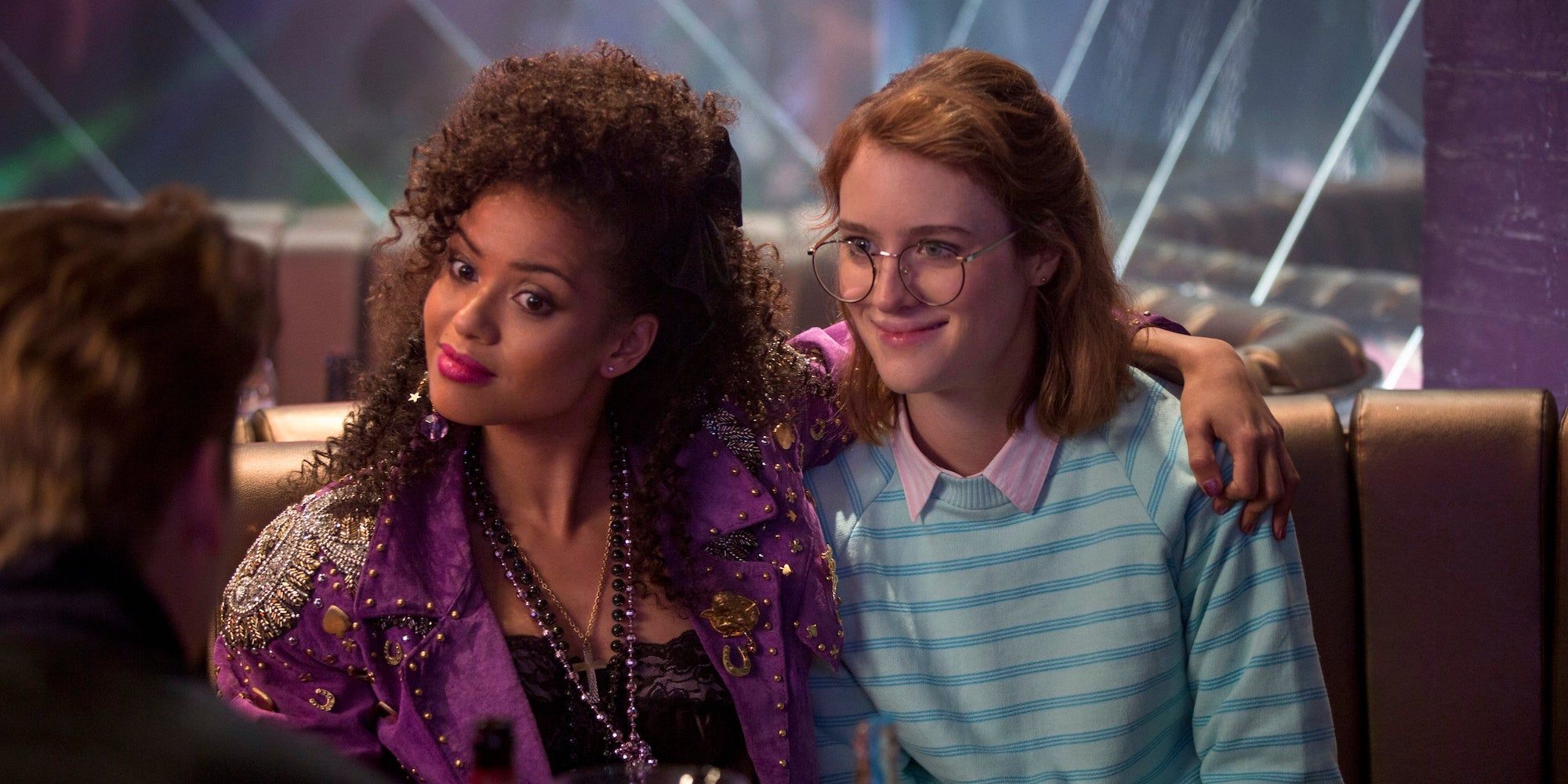
Black Mirror doesn’t normally do happy endings, but when it does, they are some of the most incredible. In season 3, episode 4, “San Junipero”, Yorkie falls in love with Kelly and hopes to spend the rest of eternity with her in the virtual world of San Junipero. In the future, the consciousness of people who are dying can be imported into a machine that places them in a world where all of their dreams come true. While Kelly is skeptical at first, she eventually joins Yorkie and Belinda Carlisle’s “Heaven Is A Place On Earth” plays them out. When it first released, fans everywhere rejoiced that Black Mirror had its first lesbian couple and its first happy ending. Everything about “San Junipero” offers a shred of hope to the future and life after death, especially if a virtual world awaits.
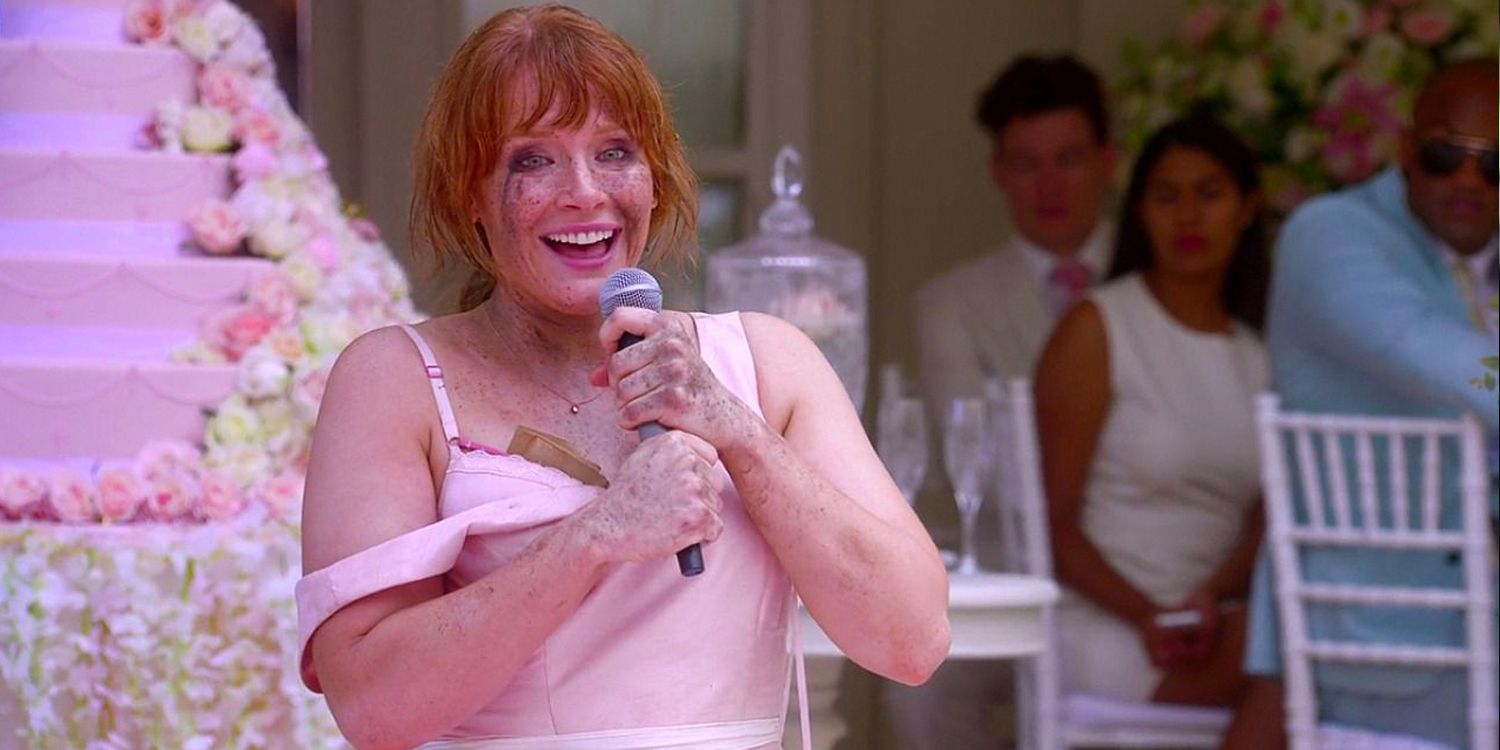
Season 3, episode 1, “Nosedive” has the strongest depiction of the future of social media technologies. When Lacie (Bryce Dallas Howard) sets out to speak at her childhood friend’s wedding, she is faced with poor rankings that lead her to abandon the superficiality of the entire system. In this world, everyone’s worth is defined by how they are ranked digitally. It determines what kind of job they can have, what buildings they are allowed to enter, where they can live, and so much more. As social media continues to envelop the lives of people everywhere, “Nosedive” and its technology becomes increasingly relevant, making this an even stronger episode as a result.
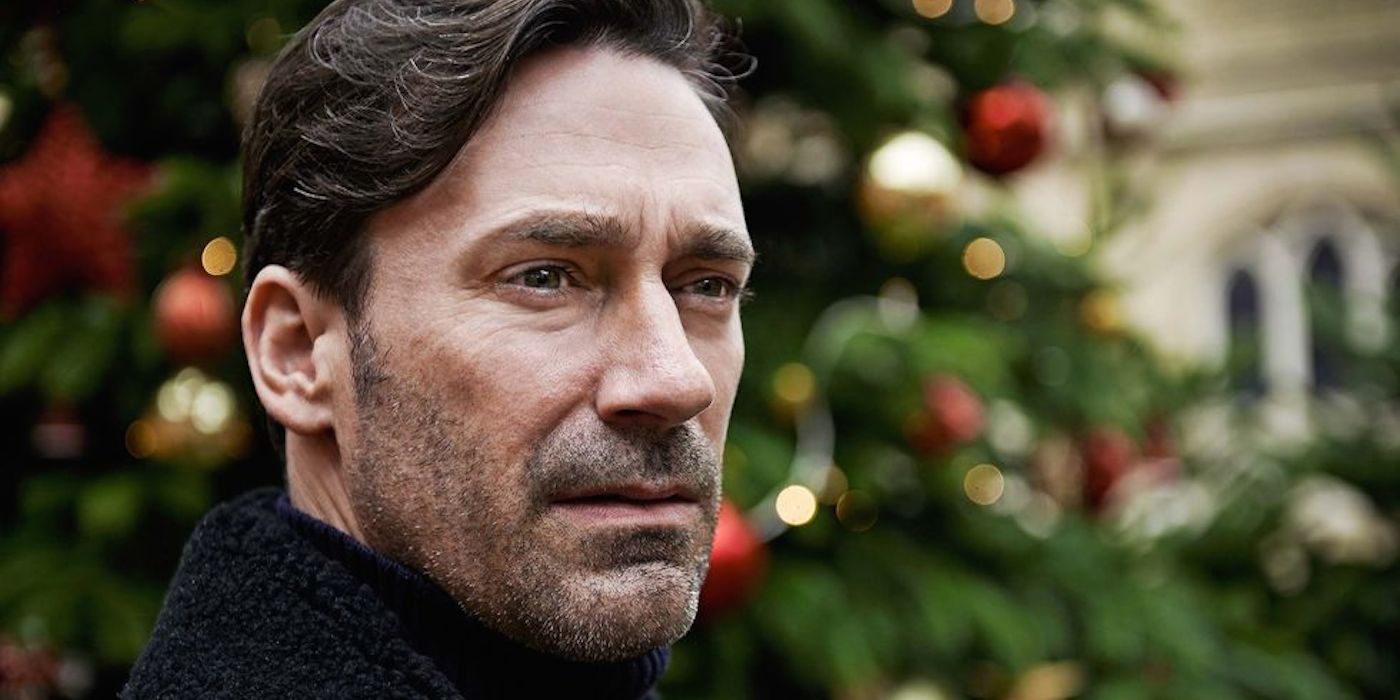
Black Mirror’s only holiday special is often considered to be its most disturbing episode as well. It stars Jon Hamm as Matt, a man who assists other men in seducing women while projecting their sexual encounters online for a select group of people to witness. His day job involves working with cookies that hold the consciousness of others into egg-shaped devices in order to get them to confess to a crime. After he gets a confession from Joe, he receives his own punishment for his involvement in the “eye-link” that caused the untimely death of a man. Matt is blocked from being able to see anyone. They appear as a static image and he appears as a red mass, which indicates that he has been charged as a sex offender. “White Christmas” is nearly perfect. The only thing that could’ve made it better would be adding a bit more explanation to the interwoven stories. However, it’s certainly one not to miss.
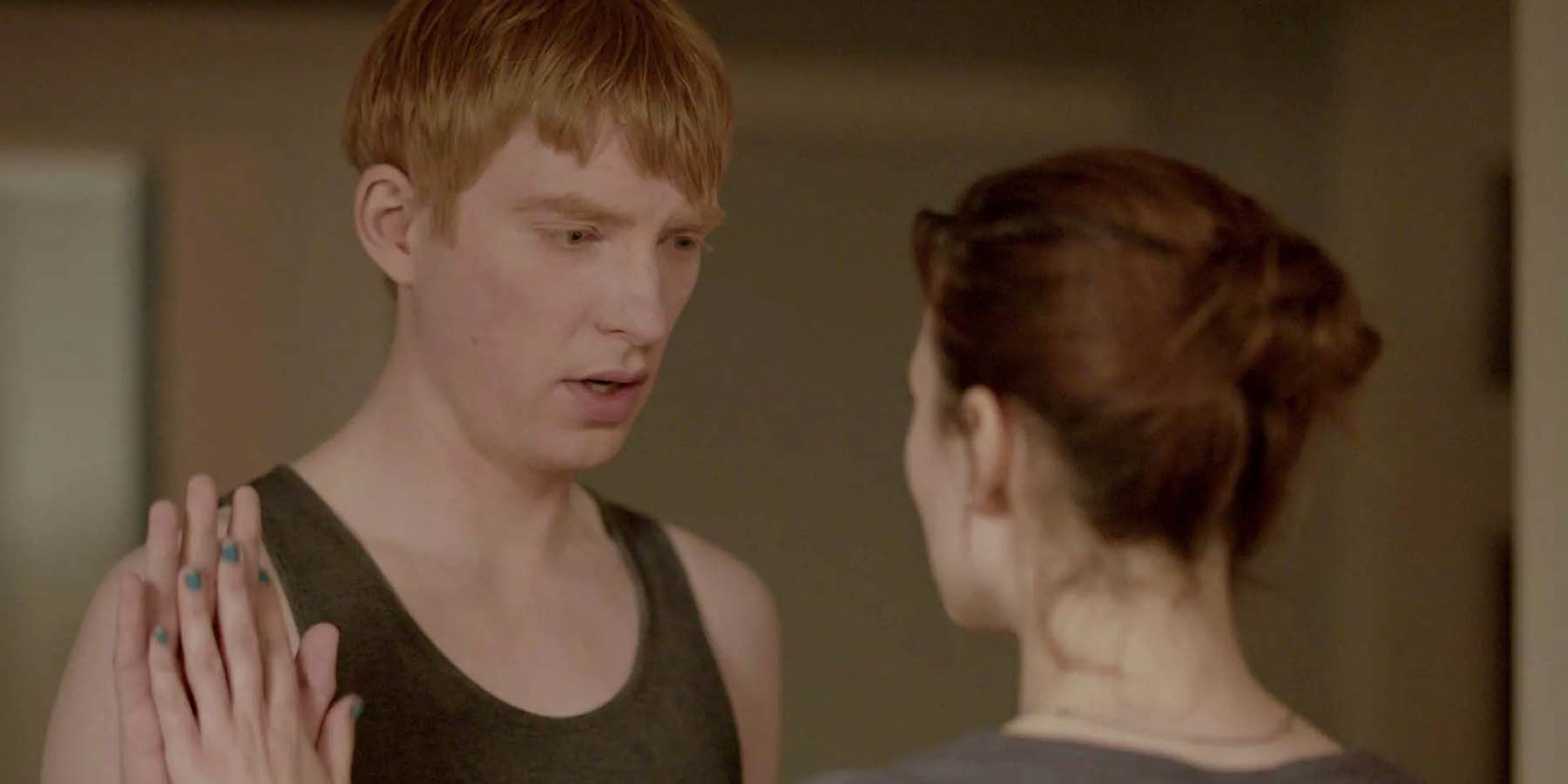
The story of “Be Right Back” perfectly captures the repercussions of using technology as a replacement for human companionship and affection, which is a hallmark of the whole show. When Martha discovers she is pregnant with her recently deceased boyfriend’s child, she uses a service that replicates his thoughts, feelings, and memories to cure her loneliness as well as her grief. It isn’t long before the service provides her with an artificial replica of the man she loves, but it quickly goes horribly awry as she comes to terms with the fact that it cannot replicate everything about her boyfriend.
“Be Right Back” is the best Black Mirror episode because it tackles the very real and relevant fears about loved ones passing as well as the hole they leave once they’re gone. Some people would do anything to have just one more moment with a person and, in the case of this episode, Martha is given that chance only to discover that not even the most advanced technology can replicate the humanity and love she’s lost. Sometimes Black Mirror‘s most captivating episodes are their most subdued. These episodes don’t constantly remind the audience that technology is at the forefront, but rather analyze how humanity will be impacted by technologies that can give them what they’ve always wanted.
Originally from https://screenrant.com/all-black-mirror-episodes-ranked-best-worst/
